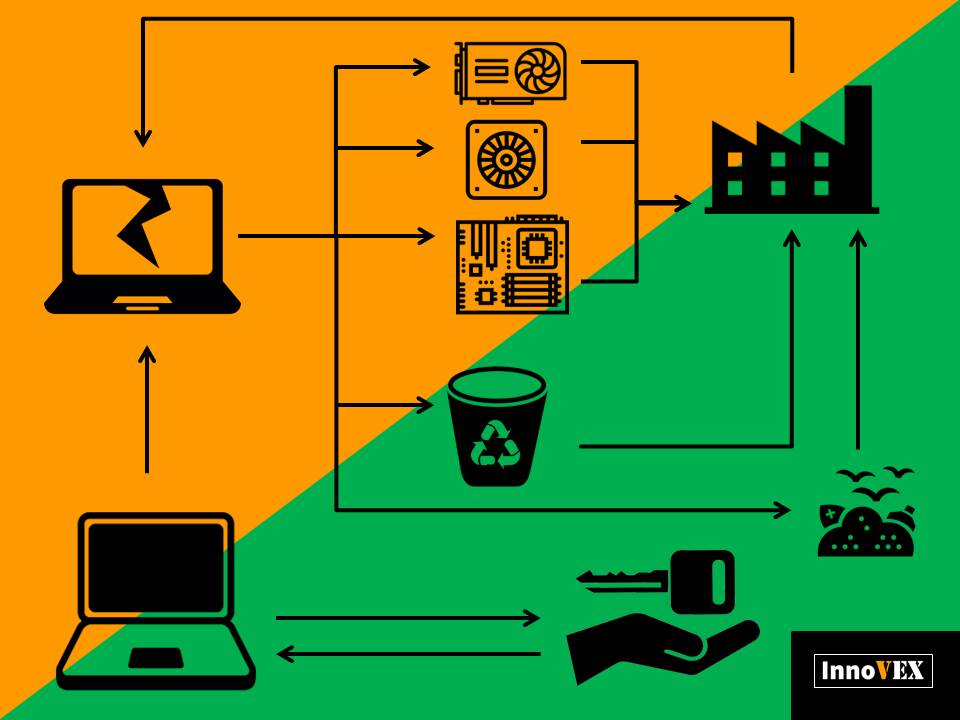
The conventional economic models require businesses to purchase raw materials once they run out. Some of the raw materials will also unsurprisingly turn into waste either in the form of defects or waste. After a few years, even the successful products will also turn into waste. Perhaps greener tech and greener practices can mitigate or reduce the wastes generation better than traditional efficiency improvement methods? In addition, can these new business models add new revenue streams for the companies willing to adopt them?
Old Materials as New
The lean manufacturing system promotes the minimization of waste without sacrificing productivity. One form of the wastes is defects which will inevitably add up to the costs as the materials, energy, and time among other things which cannot be sold or turned into revenue. In addition, if the defects are not repurposed, recycled or treated; it will be disposed of, which will add even more costs.
At the same time, usage of products will one day cause damages which cannot be repaired; either instantaneously or eventually. When this irreparable damage occurs, the conventional solution is to dispose of it despite the many still usable parts or components. This unfortunate form of squandering certainly needs to be mitigated as soon as possible.
One of the most difficult wastes to recycle is certainly the e-wastes. Currently, large amounts of e-wastes are sent to the landfills instead of recycled; either due to the presence of dangerous or toxic materials or due to as-of-yet nonexistent recycling system. The silver lining in the situation is that now e-waste becomes a potential business for startups or companies. Establishment of collection centers can effectively solve the supply chain issues of e-waste recycling. From the extraction process via recycling, it is then possible to reintroduce the parts to the production line and use them for manufacturing of new products.
Why Buy When You Can Rent?
Compared to the more traditional recycling model of waste management, Product as a Service (PaaS) is more novel. Essentially allowing consumers to rent the product and use it, this business model is more commonly associated with printers or photocopy machines which are now broadly available for rent. Lighting is also available for rent where buildings no longer need to buy their light bulbs, but instead lease it as a service.
The idea behind the business model offers users the benefits of owning the product without the additional burdens. It is very similar to renting as opposed to purchasing; the renter can gain the values, benefits, and functionalities of the product for much less for as long as needed.
Leasing an object commonly purchased for might not seem like such a convenient system, but it might actually be a game changer for a lot of industries. Many electronics today have approximately 5 years of service life (though the number may vary); but a large percentage of users opt to replace their electronics, especially smartphones after 3 years despite the devices being perfectly usable. In this case, perhaps renting will be a better solution instead of purchasing. Not only will this be more economic for the consumer, it will also solve the e-waste supply chain mentioned in the previous section.
This also means that sharing economy can extend to physical products, not just services such as transportation or accommodation. Services such as this is not limited to the private citizen either, corporations can also evolve their business model to promote renting instead of purchasing if needed. This can also boost consumer loyalty as now a new form of exit barrier is added.
Conclusion
As a growing number of people become more connected, more electronics and eventually e-wastes will be generated to satisfy their need to be connected. This issue will continue to grow especially as the resources needed to manufacture the products will one day face an unprecedented level of scarcity. Focusing on the production of electronics, addressing the potential raw material shortage early will be a wise move by businesses across the supply chain. By adopting new business practices which are more environmentally friendly, businesses will also not necessarily incur additional costs, but may instead add a new revenue generation stream.
See More Green Tech in InnoVEX 2019
Green tech is increasingly becoming a popular industry and also one of the main topics of InnoVEX 2019. Relating to this growing trend, InnoVEX will have a dedicated theme pavilion on green tech & its applications. Startups interested in joining can register here.